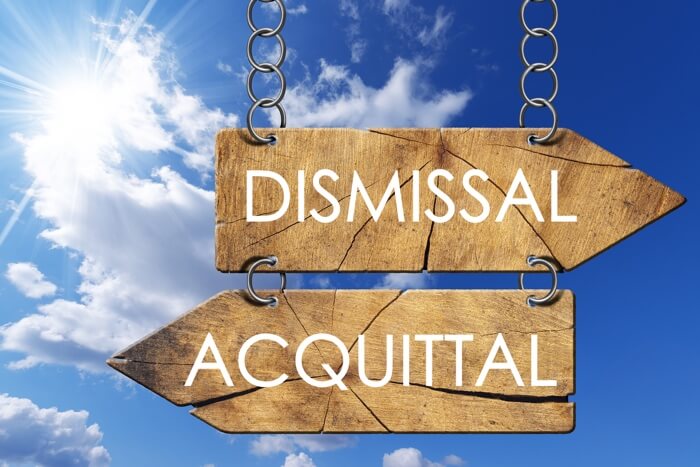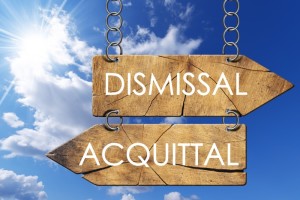
DWI Charge Did Not Include a Year in the Allegation
 Louis Jarvis, Jr. and his wife Jennifer Jones were charged with driving while intoxicated arising out of separate but related incidents on the same evening. Both pled no contest to the charges against them. But before they were found guilty, it was discovered that neither complaint against Jarvis or Jones alleged a year that the offense was committed. The trial court granted their motions to acquit. The State appealed.
Louis Jarvis, Jr. and his wife Jennifer Jones were charged with driving while intoxicated arising out of separate but related incidents on the same evening. Both pled no contest to the charges against them. But before they were found guilty, it was discovered that neither complaint against Jarvis or Jones alleged a year that the offense was committed. The trial court granted their motions to acquit. The State appealed.
The trial court stated, “The date of an offense is a key element of the offense which must be pled and proved. There is no question that it was not pled in this case nor was any trial amendment requested to amend the Information to amend the pleadings. It is my belief that the law is very clear in this case, that the State accepted its burden of proof and failed to meet it.”
The State filed a motion for a rehearing in the two cases and argued that “acquittals could not be entered because jeopardy had not attached, the trial court had never accepted the no-contest pleas and found the defendants guilty, and effectively dismissing with prejudice the prosecutions was improper.” The trial court denied the motions for rehearing. The State appealed.
10th Court of Appeals Holds that the Acquittals were Actually Dismissals
The Tenth Court of Appeals then reviewed the appeal. The Tenth Court of Appeals disagreed that the State had accepted a burden of proof. The Court held that the State is not required to introduce any evidence to support a plea to a misdemeanor and that the trial court has not authority to weigh the sufficiency of the evidence in a guilty plea to a misdemeanor case. The Court found that the Trial Court’s problem was with the State’s charging instruments, not with the State’s evidence. The Appellate Court concluded that this was not an acquittal but was a dismissal with prejudice without the State’s consent.
This might sound like the same outcome, but it is in fact very different. A dismissal, usually occurring before trial begins, means that a case can be tried again so long as the statute of limitations has not expired. Whereas, an acquittal means that a trial was held (and jeopardy attached) and now the defendant cannot be tried again for this matter. Though these seem like subtle nuances, the difference between an acquittal and a dismissal can have huge implications on the defendant.
Double Jeopardy Does Not Bar Further Prosecution
The Tenth Court of Appeals went on to determine whether Jeopardy attached in Jarvis’s case. The Court determined, “even if jeopardy attached, because, as we have held, the trial court granted a defense motion to dismiss the prosecution on a legal basis unrelated to guilt or innocence and ‘without ultimately addressing the issue of guilt or innocence, there is no double jeopardy impediment to the State’s appeal.’” In essence, because the cases concluded with a DISMISSAL and not an ACQUITTAL, the defendants can now be retried under a new information that alleges the proper date.
For more information, read the court’s full opinion in State v. Jarvis.


 Many of you have heard of the
Many of you have heard of the 
 The Fifth Amendment protection against double jeopardy is often viewed as a guarantee against having to stand trial for an offense if an individual has already been found not guilty in a previous trial. It also applies to situations where a defendant is charged with more than one offense: Is it double jeopardy if a defendant receives multiple punishments for the same transaction for multiple offenses?
The Fifth Amendment protection against double jeopardy is often viewed as a guarantee against having to stand trial for an offense if an individual has already been found not guilty in a previous trial. It also applies to situations where a defendant is charged with more than one offense: Is it double jeopardy if a defendant receives multiple punishments for the same transaction for multiple offenses?
 A community supervision (probation) revocation hearing is distinct from a criminal trial, but are its issues and procedures similar enough to a criminal trial to bind parties in future criminal trials?
A community supervision (probation) revocation hearing is distinct from a criminal trial, but are its issues and procedures similar enough to a criminal trial to bind parties in future criminal trials?
 The United States Supreme Court has held that a state-law scheme that imposed a jury of fewer than six members upon a defendant, even one accused of only a misdemeanor offense, violates the Sixth Amendment right to a jury trial. Ballew v. State, 435 U.S. 223 (1978). For Texans, Article V, Section 17, of the Texas Constitution provides: “A jury in the County Court shall consist of six persons [.]” Furthermore, Section 62.301 of the Texas Government Code provides, without explicit exception, that a jury in a County Court “is composed of six persons.” Conspicuously, the similar Government Code provision (Section 62.201) requiring a 12-person jury in a District Court contains an exception that allows the parties to dispense with the full complement of jurors.
The United States Supreme Court has held that a state-law scheme that imposed a jury of fewer than six members upon a defendant, even one accused of only a misdemeanor offense, violates the Sixth Amendment right to a jury trial. Ballew v. State, 435 U.S. 223 (1978). For Texans, Article V, Section 17, of the Texas Constitution provides: “A jury in the County Court shall consist of six persons [.]” Furthermore, Section 62.301 of the Texas Government Code provides, without explicit exception, that a jury in a County Court “is composed of six persons.” Conspicuously, the similar Government Code provision (Section 62.201) requiring a 12-person jury in a District Court contains an exception that allows the parties to dispense with the full complement of jurors.





